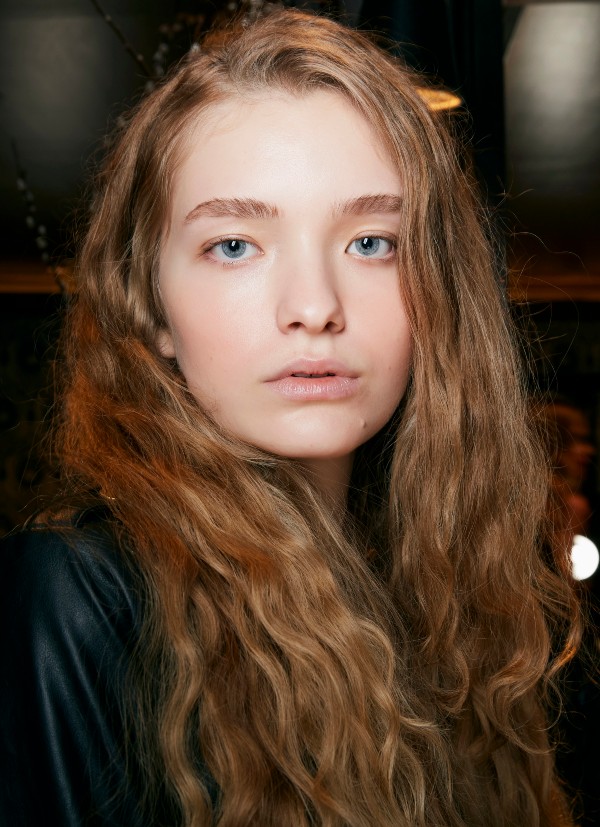Rare are those products that are supposed to good for a multitude of uses both inside and outside of our body. One thing these products seem to so often have in common is the fact they are found in abundance in the natural world. Products that are safe, non-toxic, and can fix everything from a sore throat to frizzy hair were seemingly made for us, we just had to find them.
Rosewater is one of those items. Used for thousands of years, it’s a pleasantly fragrant multipurpose skin and hair care ingredient that is meant to benefit anyone who uses it. Especially beneficial to locks both long and short, today we’re going to focus on rose water for hair and why you should consider incorporating it into your hair care routine. Although studies have been limited, research indicates there are multiple benefits for both hair and skin.
WHAT IS ROSE WATER?
Rose water is thought to have originated in Persia, which is modern-day Iran. It’s been used for thousands of years and only recently made it into the skin and hair care regimes of the Western world.
Rose water is made by steeping or steam-distilling rose petals in water. Through that process, the essential oils from the plant are extracted.
The result is a fragrant, light, water-based product. It can be used as a mild natural fragrance that replaces chemical-filled perfumes and fragrances. It’s used in food and drink products, to add an aromatic note that’s both pleasing to the senses and beneficial to the body. Rose water is also supposed to have multiple benefits for hair health.
BENEFITS OF ROSE WATER FOR HAIR
Below find some of the key benefits of rose water for hair:
SCALP SOOTHING
Rose water has both astringent and anti-inflammatory properties. Thanks to these, it can help soothe irritated skin on your scalp. In fact, it can help with inflammatory conditions as bad as psoriasis and eczema.
SCALP HEALTH
The health of your hair is directly related to the health of your skin. It follows that using rosewater on your scalp can improve your hair health.
Rose water is full of antioxidants that protect the skin on your scalp from environmental damage. It’s antiseptic and antibacterial too, so it promotes the creation of histamines in the immune system. That not only leads to healing, but also cleans, prevents, and treats infection or other skin conditions that affect your scalp and, likewise, your hair.
CONDITIONING
With high concentrations of flavonoids and vitamins A, B3, C, D, and E, rose water is not only conditioning but also moisturizing. Those properties are especially beneficial for people with curly hair, who are sure to benefit from rose water’s ability to calm frizz and promote shine.
OIL CONTROL
Some people have sebaceous glands that produce too much oil. When you have those overactive sebaceous glands on your scalp, your hair gets oily and can look and feel greasy, even almost immediately after washing.
Rosewater is known to stabilize the hair’s pH balance. It does this because its own pH rating is similar to that of your hair. Applying it to your scalp will help with nourishment and, at the same time, reduce the production of oil.
TAMES HAIR
If you have perpetually frizzy or dry hair, rose water moisturizes your scalp, which is the key to getting rid of unmanageability. Not only will a moisturized scalp help condition your hair to tame it, but it will also soothe the effects of heat and pollution, repairing porosity and restoring its own natural ability to moisturize.
REPAIRS HAIR
Those of us who blow-dry, straighten and curl our hair know that it doesn’t have a great effect on your hair health. It leads to damage and causes the hair to lose strength and luster.
Beyond the moisturizing and conditioning effects we’ve already discussed, massaging rose water into your scalp also increases blood circulation. In turn, this rejuvenates the follicles of your scalp and helps repair damaged hair.
DANDRUFF
There are three ways that rose water helps prevent and treat dandruff: it acts as an anti-inflammatory, it’s an antiseptic, and it’s an astringent. Together, these properties help reduce or lessen dandruff that’s caused by fungal infections.
HAIR GROWTH
Rosewater is believed to have stimulating properties, which can promote hair growth. Although there’s no hard evidence to prove this and the evidence that does exist is mostly anecdotal, what we do know is that a healthy scalp gives your hair the best chance at growing – and as we discussed rose water is supposed to contribute to a healthy scalp.
HOW TO USE ROSE WATER FOR HAIR?
Using rose water for hair is as easy as adding it to your shampoos, conditioners, or pouring it into a spray bottle. We’ll give you some tips on each below.
SPRAY BOTTLE
Pour rose water into a spray bottle or spritzer and you can use it to mist your hair anytime. This will help decrease frizz immediately or just give you a nice scent. For curly hair, try spritzing when your hair is wet for the best result.
DIRECT APPLICATION
To reduce dandruff, itching, inflammation, or just to benefit your scalp, you can apply rose water directly to the scalp using a cotton swab. Make sure to gently massage it in to make sure you’re reaching the hair follicles and increasing circulation, then shampoo and rinse as usual.
SHAMPOO OR CONDITIONER
Dilute your shampoo or conditioner with rose water and use it as normal. This is perhaps the easiest and most effective way to realize all of the benefits of rose water for hair.
ROSEWATER FOR HAIR RECIPE
If you’re looking for rose water to help repair hair damage, make a nourishing treatment from:
- 1 cup of rose water
- 2-3 drops of jojoba oil
- 1 capsule of vitamin E
Apply that mixture to wet hair and massage it into your scalp as well. Let it stay in for at least ten minutes before shampooing and rinsing as usual.
POTENTIAL SIDE EFFECTS OF ROSEWATER FOR HAIR
As a completely natural product that you can make on your own, rose water is considered safe for any hair type. As we are not medical professionals, before using Rosewater always check in with a specialist like your doctor.
However, if you have an allergy to roses or any of the particulates in a rose, then you might have an issue using rose water. An allergic reaction may cause burning, stinging, redness, or irritation.
You should therefore test rose water before using it. To do so, place a dime-sized amount on your arm. Monitor that spot for 24 hours. If you don’t experience any adverse reaction, you can safely apply it to your hair and scalp.
FINAL THOUGHTS
The benefits of rose water for hair are many. It can aid in everything from conditioning damaged hair to taming frizz. As a natural product, it’s something definitely worth considering. Regardless of what hair trouble you’re trying to treat, rose water and its multitude of uses is a great place to start.



